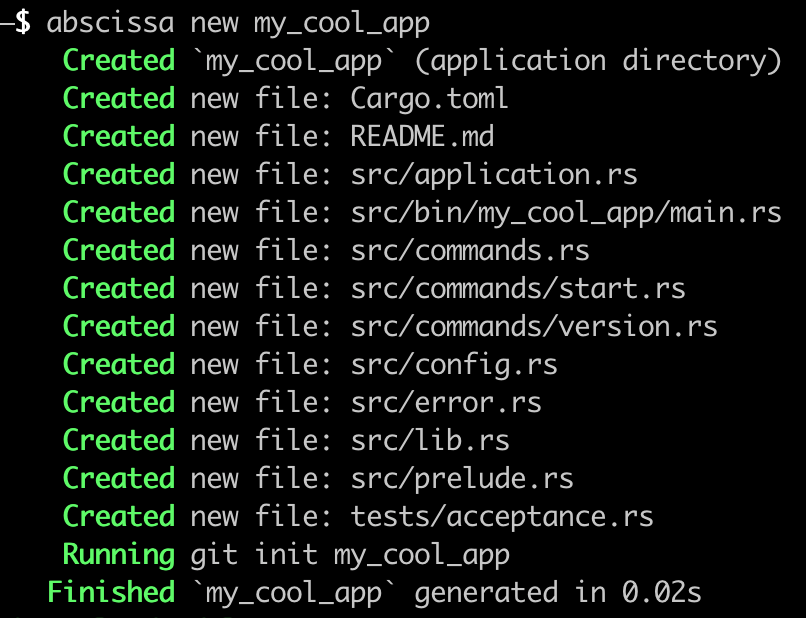Pinenut Log
An extremely high performance logging system for clients (iOS, Android, Desktop), written in Rust.
Overview
Compression
Pinenut supports streaming log compression, it uses the Zstandard (aka zstd), a high performance compression algorithm that has a good balance between compression rate and speed.
Encryption
Pinenut uses the AES 128 algorithm for symmetric encryption during logging. To prevent embedding the symmetric key directly into the code, Pinenut uses ECDH for key negotiation (RSA is not used because its key are too long). When initializing the Logger, there is no need to provide the symmetric encryption key, instead the ECDH public key should be passed.
Pinenut uses secp256r1 elliptic curve for ECDH. You can generate the secret and public keys for encryption yourself, or use Pinenut's built-in command line tool: pinenut-cli.
Buffering
In order to minimize IO frequency, Pinenut buffers the log data before writing to the file. Client programs may exit unexpectedly (e.g., crash), Pinenut uses mmap as buffer support, so that if the program unexpectedly exits, the OS can still help to persist the buffered data. The next time the Logger is initialized, the buffered data is automatically read and written back to the log file.
In addition, Pinenut implements a double-buffering system to improve buffer read/write performance and prevent asynchronous IOs from affecting logging of the current thread.
Extraction
With Pinenut, we don't need to retrieve all the log files in the directory to extract logs, it provides convenient extraction capabilities and supports extraction in time ranges with minute granularity.
Parsing
The content of Pinenut log files is a special binary sequence after encoding, compression and encryption, and we can parse the log files using the parsing capabilities provided by Pinenut.
Installation
Pinenut provides APIs for these languages: Swift, Rust. Kotlin will be supported in the future.
Swift Package Manager
.package(url: "https://github.com/TangentW/Pinenut.git", from: "0.0.1")
CocoaPods
pod 'Pinenut'
Rust Cargo
[dependencies]
pinenut-log = 0.0.1
Usage
Pinenut's APIs are generally similar regardless of the language used.
Logger Initialization
Pinenut uses a Logger instance for logging. Before we initialize the Logger, we need to pass in the logger identifier and the path to the directory where the log files are stored to construct the Domain structure.
We can customize the Logger by explicitly specifying Config, see the API documentation for details.
Swift Code
let domain = Domain(identifier: "MyApp", directory: "/path/to/dir")
let config = Config(key: "Public Key Base64", compressionLevel: 10)
let logger = Logger(domain: domain, config: config)
Rust Code
let domain = Domain::new("MyApp".into(), "/path/to/dir".into());
let config = Config::new().key_str(Some("Public Key Base64")).compression_level(10);
let logger = Logger::new(domain, config);
Logging
Just construct the Record and call the log method.
Swift Code
Swift provides more convenient APIs for logging:
logger.log(.info, "Hello World")
logger.log(.debug, tag: "MyModule", "Debug Message")
// `Logger` provides APIs for logging levels.
logger.info("Hello World")
logger.error("Error message")
logger.debug(tag: "MyModule", "Debug message")
// Flushes any buffered records asynchronously.
logger.flush()
Rust Code
Records can be constructed in Rust via the Builder pattern:
// Builds `Meta` & `Record`.
let meta = Meta::builder().level(Level::Info).build();
let record = Record::builder().meta(meta).content("Hello World").build();
logger.log(&record);
// Flushes any buffered records asynchronously.
logger.flush();
See the API documentation for details.
Extraction
Just call the extract method to extract the logs for the specified time range (with minute granularity) and write them to the destination file.
Swift Code
let domain = Domain(identifier: "MyApp", directory: "/path/to/dir")
let range = Date(timeIntervalSinceNow: -1800)...Date()
do {
try Logger.extract(domain: domain, timeRange: range, destPath: "/path/to/destination")
} catch {
print("Error: \(error)")
}
Rust Code
let domain = Domain::new("MyApp".into(), "/path/to/dir".into());
let now = chrono::Utc::now();
let range = now.sub(Duration::from_secs(1800))..=now;
if let Err(err) = pinenut_log::extract(domain, range, "/path/to/destination") {
println!("Error: {err}");
}
Note: The content of the extracted file is still a binary sequence that has been encoded, compressed, and encrypted. We need to parse it to see the log text content that is easy to read.
Parsing
You can use the parse function for log parsing, and you can specify the format of the log parsed text. See the API documentation for details.
Swift Code
do {
try Logger.parse(path: path, to: dest, secretKey: secretKey)
} catch {
print("Error: \(error)")
}
Rust Code
// Specifies the `DefaultFormater` as the log formatter.
if let Err(err) = pinenut_log::parse_to_file(&path, &output, secret_key, DefaultFormatter) {
println!("Error: {err}");
}
Or use the built-in command line tool pinenut-cli:
$ pinenut-cli parse ./my_log.pine \
--output ./plain.log \
--secret-key XXXXXXXXXXX
Keys Generation
Before initializing the Logger or parsing the logs, you need to have the public and secret keys ready (The public key is used to initialize the Logger and the secret key is used to parse the logs).
You can use pinenut-cli to generate this pair of keys:
$ pinenut-cli gen-keys
Benchmark
Some of Pinenut's designs are inspired by Xlog, here's a comparison of their benchmarks.
Both logging libraries support Zstd, so the benchmark will be run with both using the same version of the zstd library (v1.5.5) and a compression level of 10.
Execution on iPhone 12 with iOS 15.5.
| Library | Processed Log Records per Second (Speed) |
|---|---|
| Pinenut | 447460 |
| Xlog | 317473 |
TODO
- Level Filter
- Kotlin APIs
License
Pinenut is released under the MIT license. See LICENSE for more details.



